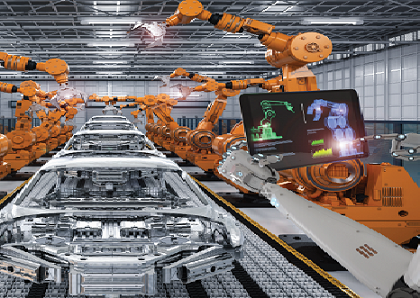No products in the cart.

Engineering is the center of luxury for human race. The art of building engines, roads, bridges, can be justified as the true functions of engineering.
Contents Summary
What Makes Engineering different from other fields of Studies
Engineering is Problem solving common to all engineering work. The problem may involve quantitative or qualitative factors; it may be physical or economic; it may require abstract mathematics or common sense. Of great importance is the process of creative synthesis or design, putting ideas together to create a new and optimum solution.
What Makes Engineering different from other fields of Studies
The function of the scientist is to know, while that of the engineer is to do. The scientist adds to the store of verified, systematized knowledge of the physical world; the engineer brings this knowledge to bear on practical problems. Engineering is based principally on physics, chemistry & mathematics and their extensions into materials science, solid and fluid mechanics, thermodynamics, transfer and rate processes, system analysis, computer programming, electronics and robotics.
How Does Engineering Works?
Although engineering problems vary in scope and complexity, the same general approach is applicable. First comes an analysis of the situation and a preliminary decision on a plan of attack. In line with this plan, the problem is reduced to a more categorical question that can be clearly stated. The stated question is then answered by deductive reasoning from known principles or by creative synthesis, as in a new design. The answer or design is always checked for accuracy and adequacy. Finally, the results for the simplified problem are interpreted in terms of the original problem and reported in an appropriate form.
Fields of engineering
- Aeronautical engineering
- Architectural engineering
- Chemical engineering
- Civil engineering
- Electrical engineering
- Genetic engineering
- Hydraulic engineering
- Industrial engineering
- Mechanical engineering
- Nuclear engineering
- Technology engineering
- Naval engineering
- Automotive engineering
Engineering as a profession
The engineering offers the design and structure to build new engines, manage the engines, create a structure and it make human race live in comfort. Engineering is not free to select the problem that interests him; he must solve problems as they arise; his solution must satisfy conflicting requirements. Usually efficiency costs money; safety adds to complexity; improved performance increases weight. The engineering solution is the optimum solution, the end result that, taking many factors into account, is most desirable. It may be the cheapest for a specified level of performance, the most reliable within a given weight limit, the simplest that will satisfy certain safety requirements, or the most efficient for a given cost. In many engineering problems, the social costs are significant.

Applicability Of Engineering
Engineers employ two types of natural resources – materials and energy. Since most resources are limited, the engineer must concern himself with the continual development of new resources as well as the efficient utilization of existing ones. The results of engineering activities contribute to the welfare of man by furnishing food, shelter, and comfort; by making work, transportation and communication easier and safer; and by making life pleasant and satisfying.
Basis of engineering
The branches indicate what the engineer works with; the functions describe what he does. In order of decreasing emphasis on science, the major functions of all engineering branches are the following:
Research. The research engineer seeks new principles and processes by employing mathematical and scientific concepts, experimental techniques, and inductive reasoning.
Development. The development engineer applies the results of research to useful purposes. Ingenious and creative application of new knowledge may result in a working model of a new electronics circuit, a chemical process, an industrial machine, or a gadget of devices.
Design. In designing a structure or a product, the engineer selects methods, specifies materials, and determines shapes to satisfy technical requirements and to meet performance specification.
Construction. The construction engineer is responsible for preparing the site, determining procedures that will economically and safely yield the desired quality, directing the placement of materials, and organizing the personnel and equipment.
Production. Plant layout and equipment selection, with consideration of human and economic factors, is the responsibility of the production engineer. He chooses processes and tools, integrates the flow of materials and components, and provides for testing and inspection.
Operation. The operating engineer controls machines, plants, and organizations providing power, transportation, and communication. He determines procedures and supervises personnel to obtain reliable and economic operation of complex equipment.
Management and other functions and industries, engineers analyze customer requirements, recommend units to satisfy needs economically, and resolve related problems. In some industries, too, engineers decide how assets are to be used.




